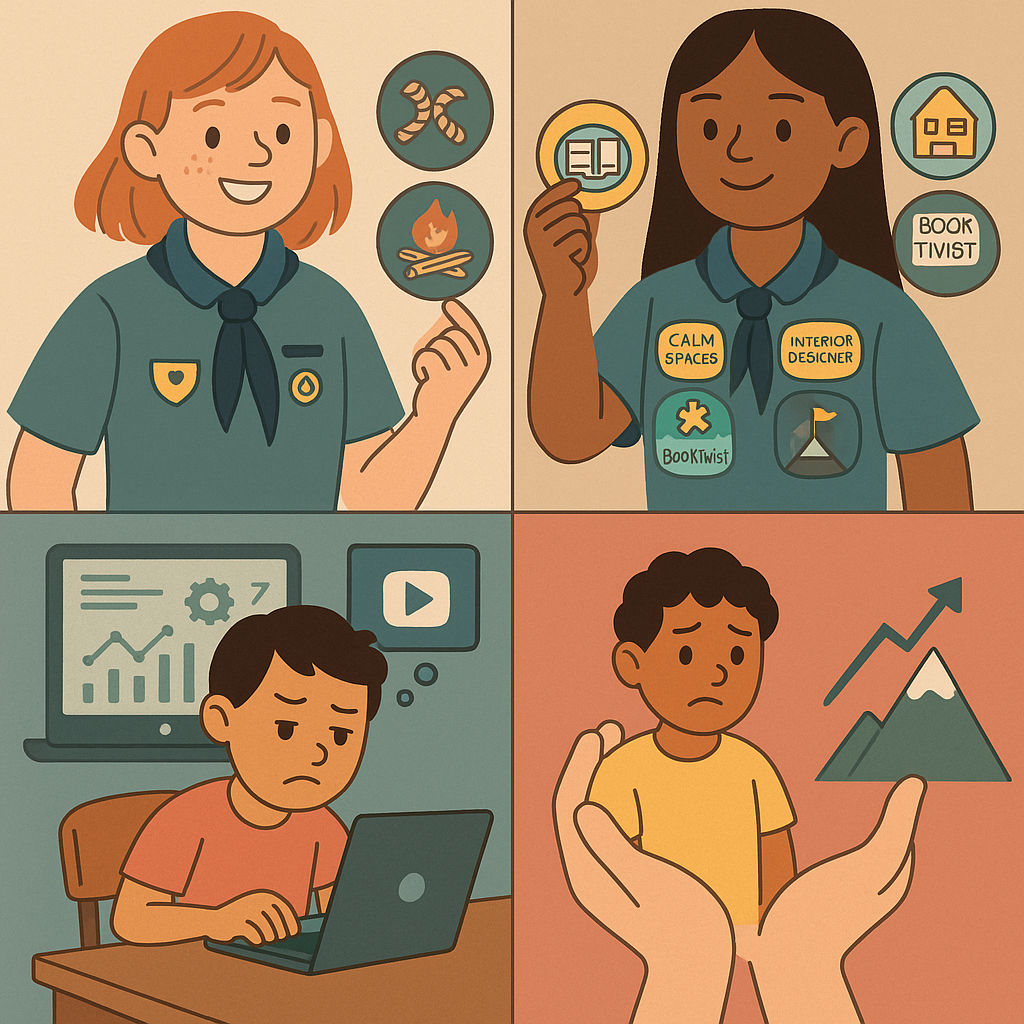Girl Guides used to be awarded badges for tying knots, campfire cooking, or showing a certain level of Morse code proficiency.
But now they're being awarded badges for simply showing an interest in activities.... Girlguiding's new introduction of 72 interest badges represents a shift to hobbies and thinking, rather than old-fashioned vocational skills.
Today's Girl Guides can earn badges like "Booktivist," "Calm Spaces," or "Interior Designer."

Softer Paths: from Skills to Interests
These new Girlguiding badges, were co-created with over 20,000 girls, parents, and volunteers, and the organisation says they are "empowering," created to build confidence and address issues of the modern day such as online harm and misogyny
All of this sounds forward-thinking, but the rigor of the old system— learning Morse, reading maps required girls to actually come up to a measurable standard, these new ones don't.
This is not just about Girlguiding. Across modern childhood, there is a more common tendency to emphasize emotional health and identity over resilience through challenge.
Gen Alpha: Rich in Technology, Insulated from Risk?
Generation Alpha (2010–2024) will enter the workforce in around 2026 —and they're the most technology-savvy, screen-intelligent generation so far. Experts say they'll focus on lifelong learning, the greater good, and purposeful work .
Teachers report that many of them find it difficult to focus, and feel discouraged easily if they can't achieve taks. Some seem to be dependent on technology - struggling to write manually or fill out assignments as needed - and some struggle with intrinsic motivation or perseverance
This is a gneration in which the postponing of risk-taking and reduced independence could have consequences on their ability to define and deal with issues independently, potentially even putting their mental health and wellbeing at risk.
I'm not sure these new badges do anything to help that trend....?
Balancing Nurture and Challenge
It's no doubt that today's children face genuine pressure —mental health problems, information saturation, and a fast-moving world. So relaxing expectations is understandable. But without challenges that allow for failure, frustration, and tangible skill-building, we might be teaching a generation unprepared for genuine challenges.